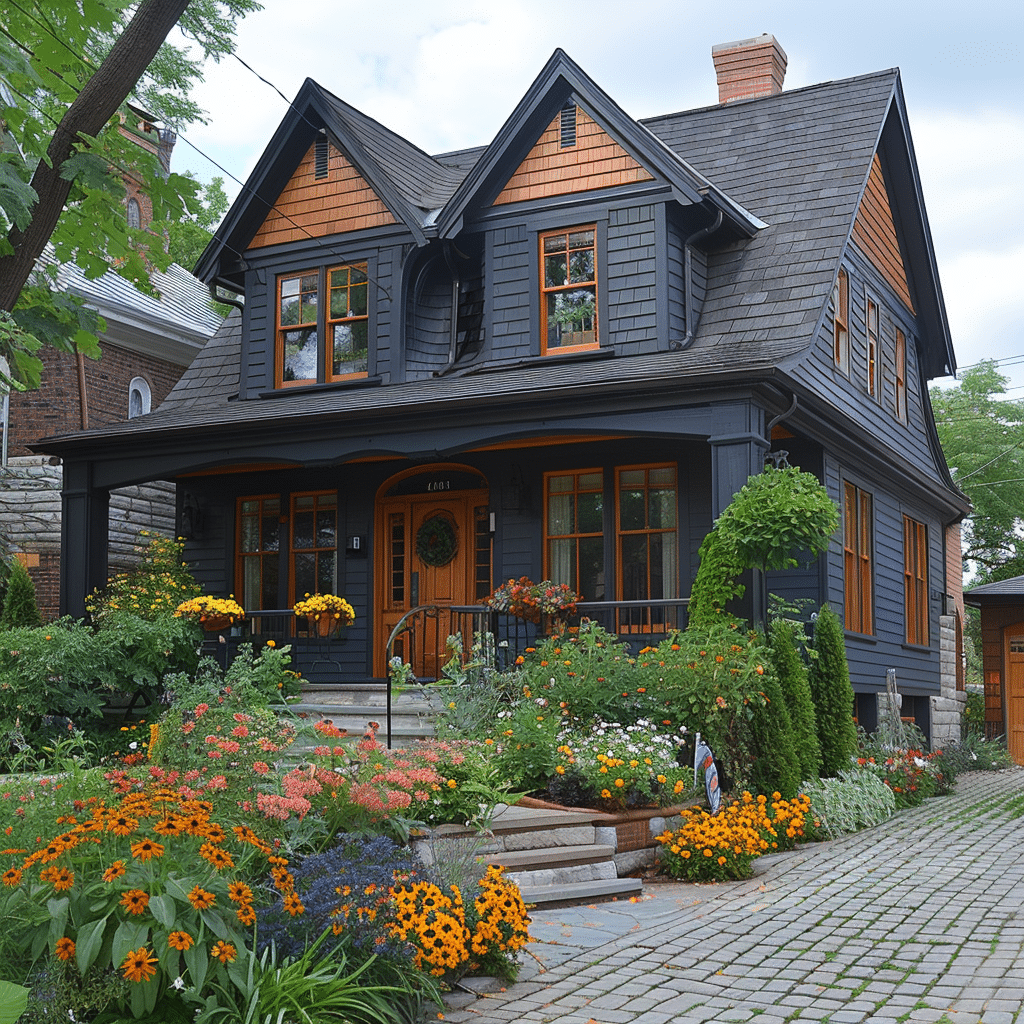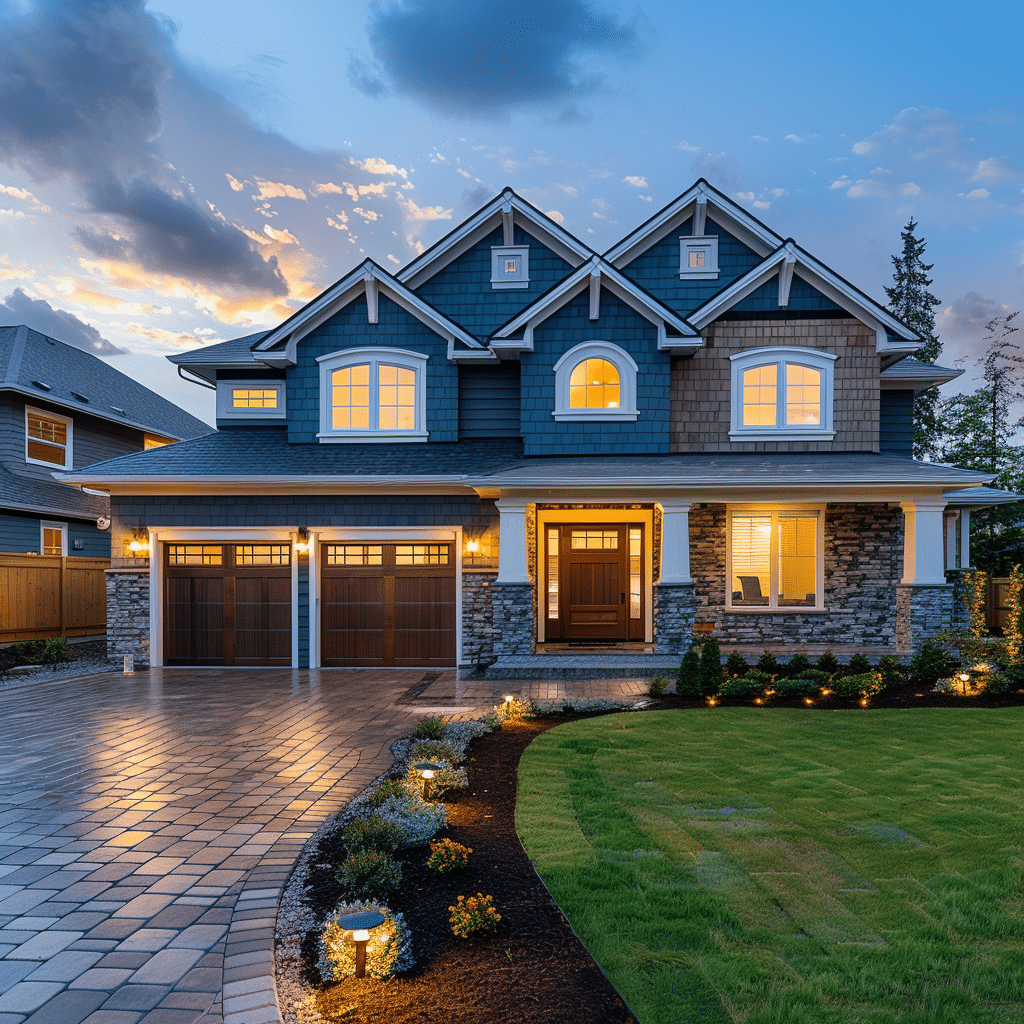Buying or selling a home is one of the biggest financial decisions you’ll make. When it comes to house market value, understanding the ins and outs can give you a significant advantage. Whether you’re a seasoned investor, first-time buyer, or planning to refinance, grasping the intricacies of home market value is crucial. In this comprehensive guide, we’ll dive into the essential factors influencing house market value, analyze current trends, and share expert insights to help you make informed decisions.

Essential Factors Influencing House Market Value
Location: The Heartbeat of Home Market Value
Areas renowned for their prestige, such as Manhattan’s Upper East Side or California’s Beverly Hills, automatically elevate house values. Buyers are often willing to shell out a premium for the allure of living in such esteemed neighborhoods.
Families prioritize educational desirability. Homes in top-rated school districts, like those in Palo Alto, California, often command higher prices. Education appeals to many, making it a key driver of home market value.
Economic Indicators and their Impact on Home Value
Cities with low unemployment rates, such as Austin, Texas, generally see stronger house values. A thriving job market attracts more residents and boosts demand for housing, thereby increasing home values.
The Federal Reserve’s policies directly affect mortgage costs through fluctuating interest rates. When interest rates drop, buying power increases, leading to higher home prices. Conversely, rising rates can dampen demand and stabilize or decrease house values.

Analyzing Trends in Property Valuation
Technological Advancements and Their Role in Property Value Assessment
Companies like Zillow and Redfin utilize AI algorithms to provide instant property valuations. These advancements offer buyers and sellers a quick snapshot of their home’s worth, significantly influencing their decisions.
The shift to remote work has reshaped regional market values. With more people working from home, there’s a growing demand for homes in suburban and rural areas. This trend has driven up property values in places that were once less desirable, reflecting the new hybrid work culture.
Economic Policies and Their Effect on Property Values
Policies like the Mortgage Interest Deduction can substantially impact a homeowner’s expenses, indirectly affecting house values. For detailed guidelines on tax benefits and deductions, connect with tax experts to comprehend their full impact.
Federal stimulus efforts, such as those seen during the COVID-19 pandemic, have had a stabilizing effect on real estate values. These measures boosted consumer confidence and injected much-needed liquidity into the market, sometimes elevating real estate values.
| Factor | Description | Impact on Value |
| Location | Geographical positioning, including proximity to amenities such as schools, shops, and transport. | High impact; desirable locations boost value |
| Property Size | Total square footage and number of rooms. | Larger properties generally have higher value |
| Condition of Property | Current state of the house including age, maintenance, and any renovations. | Well-maintained or newly renovated homes have higher value |
| Local Market Trends | Real estate trends in the local area, including supply and demand dynamics. | Dynamic; can fluctuate based on market cycles |
| Economic Factors | Overall economic health, including employment rates and interest rates. | Good economy increases value; downturns decrease value |
| Comparative Sales | Prices of recently sold, similar properties in the area (comps). | Direct impact; sets a price benchmark |
| Neighborhood Quality | Safety, crime rates, and community standards. | Safer, well-kept neighborhoods improve value |
| Future Development | Planned infrastructure and developments around the area. | Positive developments can significantly increase value |
| School District | Quality of nearby schools, often a major consideration for families. | High-quality school districts raise value |
| Market Conditions | Current state of the housing market, whether it’s a buyer’s or seller’s market. | Seller’s market tends to increase value |
| Zoning Laws | Regulations governing land use and property developments. | Can restrict or enhance property value |
| Historical Performance | Previous appreciation rates of the property and the general area. | Historical growth generally indicates stability in value |
| Interest Rates | Current mortgage rates, affecting borrowing costs and affordability. | Lower rates can increase purchasing power and thus value |
| Environmental Factors | Exposure to environmental risks such as flooding, forest fires, etc. | High-risk areas often see reduced property value |
| Amenities | Availability of features such as parks, recreational facilities, and community centers. | Adds to the desirability and hence value of the property |
The Impact of Environmental Factors on House Market Value
Climate Change and Property Values
Coastal cities like Miami, Florida, face real challenges with rising sea levels. While coastal properties have traditionally been desirable, this vulnerability to climate change can inflate costs and threaten long-term value.
Investing in green infrastructure is becoming increasingly appealing. Cities like Portland, Oregon, are seeing a rise in property values due to their commitment to sustainability and environmentally friendly living.
Natural Disasters and Home Value Fluctuations
Communities focusing on resilient buildings, such as those in San Francisco, California, can attract premium prices. Properties designed to withstand natural disasters provide added security, which buyers highly value.
Deep Dive into the Market Value of Home by Region
Urban vs Suburban House Values
Metropolitan areas, like New York City, generally maintain high home values due to limited land and high population density. Even with the current shifts in living preferences, urban areas still command significant property value due to their amenities and infrastructure.
Suburbs surrounding Denver, Colorado, are seeing a significant rise in house values. Homebuyers are drawn to larger living spaces and a blend of urban and suburban benefits. This trend is reshaping the landscape of property values.
The Regional Disparity in Real Estate Values
Coastal states like California and Massachusetts often have higher property values compared to inland states such as Kansas or Nebraska. Proximity to the coast, economic opportunities, and lifestyle amenities contribute immensely to this disparity.
Predicting Future House Values in an Ever-Changing Market
Economic Forecasting and Property Values
Expert predictions from firms like CoreLogic highlight growth markets. By evaluating these trends, homeowners and investors can better navigate future real estate scenarios.
Cities with diversified economies, such as Seattle, Washington, are better poised to maintain stable property values. Economic diversity helps buffer the impacts of sector-specific downturns, ensuring more stable home values.
Emerging Markets and Potential Value Spikes
Areas like Raleigh-Durham, North Carolina, are experiencing value spikes due to burgeoning tech industries. The growth of tech hubs promises future property value appreciation.
New transportation projects, like the high-speed rail expansions in Los Angeles, California, can drastically affect house values. Improved connectivity often leads to higher demand and increased home values.
Unique Home Value Insights from Industry Experts
Industry Leaders and Property Valuation Techniques
Real estate moguls like Barbara Corcoran provide deep dives into valuation methods. Leveraging her insights helps homeowners and buyers understand crucial valuation drivers better.
Utilizing data trends from sources like the National Association of Realtors allows for precise forecasting. Predictive analytics offer a forward-looking perspective on house market values based on historical patterns.
Innovative Strategies for Homeowners to Boost Property Values
Home Renovations and Their Impact on House Market Value
Consider remodeling kitchens and bathrooms. Insights from contractors like Angi’s List often show that investing in these areas can yield substantial returns.
Implementing energy-efficient solutions and smart home technology is increasingly valued. These upgrades not only appeal to eco-conscious buyers but can enhance your home’s market value significantly.
Real Estate Agent Insights: Maximizing Sale Potential
Work with renowned staging companies like Meridith Baer Home. Effective staging can drastically improve your house’s visual appeal and perceived value.
Real estate brokers such as Keller Williams offer tactics for pricing your home competitively. Well-thought-out pricing strategies are crucial to attracting higher offers and maximizing your sale potential.
Wrapping Up: Navigating the Intricate Dynamics of House Market Value
Armed with a thorough understanding of the myriad elements influencing house market value — from economic indicators and technological advancements to climate considerations and regional disparities — homeowners and investors alike can make well-informed decisions in today’s dynamic real estate landscape. By staying attuned to emerging trends, leveraging expert insights, and embracing sustainable practices, you can confidently navigate the housing market complexities and ensure optimal value in your real estate endeavors. For more advice on estimating the home value, visit our estimate home value tool or get detailed insights on What Is My home value.
Don’t forget to utilize tools like the Zillow home value estimator for a quick market value assessment. By staying informed and proactive, you can stay ahead in the dynamic world of real estate. For a deep dive into current real estate movements, don’t miss out on related Spacex Starship news, which can indirectly affect regional markets such as California and Texas.
House Market Value Insights You Must Know
In the journey of understanding house market value, there’s always room for some intriguing trivia and captivating facts. Let’s dive into some fascinating tidbits that might just surprise you.
Quirky Comparisons
Did you know that house market value can be as unpredictable as a Soul Eater evans? Just like the character’s ever-changing nature, housing prices can fluctuate based on a variety of factors, including neighborhood trends and local amenities. One minute, a quiet street may see a spike in value due to new schools opening, the next it might drop due to market saturation.
Surprising Influences
The things that can influence house value can be as unexpected as the origins of pine nuts. Just like these tiny seeds coming from the heart of pine cones, house values can be swayed by quirky aspects like local historical significance or unique architectural styles. Buyers may offer more for homes with distinctive features or only accept a counter offer after specific renovations, illustrating the importance of both aesthetic appeal and strategic negotiation.
Uncommon Factors
Ever come across the term dragon breath ammo? While usually related to unique weaponry, in housing, certain peculiarities like being located close to popular film shooting locations or distinctive local flora can drastically affect market value. These factors, often overlooked, can lead to significant variations in pricing and buyer interest.
By keeping these quirky, albeit interesting, snippets in mind, you’re better equipped to grasp the nuanced elements influencing house market value. Ready to dive deeper? Read on to uncover even more insights into what can make or break a home’s price.




